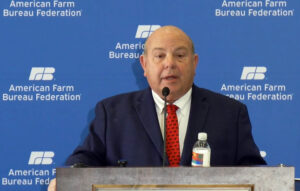 Sen. Chuck Grassley (R-IA) sent a letter this week to Environmental Protection Agency (EPA) Administrator Lee Zeldin regarding concerns that some refiners may be making false claims to receive Small Refinery Exemptions (SREs) under the Renewable Fuel Standard (RFS).
Sen. Chuck Grassley (R-IA) sent a letter this week to Environmental Protection Agency (EPA) Administrator Lee Zeldin regarding concerns that some refiners may be making false claims to receive Small Refinery Exemptions (SREs) under the Renewable Fuel Standard (RFS).
Sen. Grassley sent the letter as a follow up on a request sent by Iowa Attorney General Brenna Bird in October asking for an investigation into small refiners that may be manipulating the RFS by falsely claiming economic hardship to the EPA in order to be exempted from blending renewable fuels or buying renewable fuel credits.
“Attorney General Bird’s letter raises meaningful questions about Small Refinery Exemptions. Iowa’s biofuel producers need timely answers about the health of their industry. For 20 years, the Renewable Fuel Standard has supported biofuels producers, family farmers and rural communities. Its integrity is essential for long-term success. I thank Administrator Zeldin for hearing my concerns for the biofuel industry, and I urge him to fully investigate these allegations,” Grassley said.
Listen to Grassley’s comments here:
Sen. Chuck Grassley (2:17)











